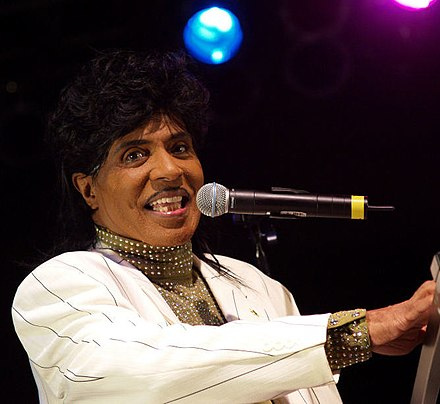In the annals of music history, few names resonate with as much vibrancy and influence as that of Little Richard. As a pioneering force in rock and roll, he leaves an enduring legacy that inspires audiences worldwide, transcending generations.
Early Life and Musical Roots
Born on December 5, 1932, in Macon, Georgia, Little Richard’s musical journey started at a young age. Raised in a gospel music household, he honed his talents in the church choir, where his distinctive voice and flamboyant style emerged.
Rise to Stardom
In the mid-1950s, Little Richard exploded onto the music scene with groundbreaking hits, propelling him to stardom and altering popular music forever. With chart-toppers like “Tutti Frutti,” “Long Tall Sally,” and “Good Golly, Miss Molly,” he pioneered a new sound blending rhythm and blues with gospel and soul, laying the foundation for the rock and roll revolution.
Cultural Impact
Little Richard’s impact on popular culture, which extends beyond his musical contributions, cannot be overstated. As one of the first openly flamboyant and gender-bending figures, he challenged norms, paving the way for future artists to express themselves freely.
Influence on Future Generations
Little Richard’s influence reverberates throughout the music world, with countless artists citing him as a primary inspiration. From the Beatles and the Rolling Stones to Prince and David Bowie, his innovative style and electrifying stage presence continue to shape the landscape of modern music.
Legacy and Recognition
Throughout his career, Little Richard earned widespread acclaim, and inductions into multiple halls of fame, including the Rock and Roll Hall of Fame and the Songwriters Hall of Fame. The global celebration of his contributions to music solidifies his status as a true icon of the industry.
FAQs
What was Little Richard’s real name?
Little Richard’s birth name was Richard Wayne Penniman. He later adopted the stage name “Little Richard” as he embarked on his music career.
What genre of music was Little Richard known for?
Little Richard primarily contributed to rock and roll music. He played a pivotal role in shaping the genre with his energetic performances and innovative sound, which fused elements of rhythm and blues, gospel, and soul.
What are some of Little Richard’s most famous songs?
Some of Little Richard’s most famous songs include “Tutti Frutti,” “Long Tall Sally,” “Good Golly, Miss Molly,” and “Lucille.” These chart-topping hits helped propel him to stardom and solidify his place in music history.
What is Little Richard’s legacy in the music industry?
Little Richard’s legacy in the music industry is profound and far-reaching. Widely regarded as a trailblazer, he broke down barriers and paved the way for future generations of artists.
Countless musicians across various genres hear his influence in their work, and his impact on popular culture remains enduring.
Conclusion
In conclusion, Little Richard’s enduring impact on music history is undeniable. From his humble beginnings in Macon, Georgia, to his meteoric rise to fame, he blazed a trail that continues to inspire and resonate with audiences around the world. As we celebrate his contributions, let us remember the timeless legacy of this musical pioneer and the indelible mark he has left on the fabric of popular culture.

